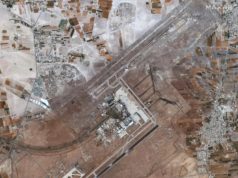On Monday, Syrian Prime Minister Riyad Hijab announced his defection from President Bashar al-Asad’s “killing and terrorist regime” and his decision to join the “blessed revolution”. Hijab, who was appointed by Asad only two months ago, was tasked with forming Syria’s cabinet and held a largely symbolic office. Many have asserted that this news does not amount to a fatal strike. Perhaps to solidify that point, Asad named an interim successor to the defected prime minister within hours of his departure.
The defection, however, constitutes a major public relations blow to the regime. Hijab, a Sunni in an Alawite-dominated government, was a key and influential member of the Baath Party and crucial to Asad’s image of maintaining an inclusive government. Described as a staunch loyalist of the regime, his history with the Baath Party extends back as far as 1998. Before his appointment to the office of prime minister, Hijab worked for the Syrian government as governor of the southern province Qunaytira in 2008, and rose to minister of agriculture in April 2011, around the beginning of the uprising.

Former Syrian Prime Minister Riyad Hijab speaks during a meeting in Damascus. (Photo: SANA) |
Following the Syrian parliamentary elections in May as a response to mounting pressure, Asad chose Riyad Hijab as his prime minister. When offered the position, Hijab was reportedly told he would be killed if he did not oblige. After his forced appointment to office in June 2012, Hijab immediately began to plan for his departure. Using his contacts in the Free Syrian Army, the armed opposition to the regime, Hijab’s extended family quietly exited the country. They were soon followed by the prime minister along with his wife and children.
While not counted amongst Asad’s inner circle, Sunnis and other non-Alawites located in prominent positions of Syria’s government are defecting at an alarming rate. Just last month, childhood friend of Asad and Sunni General, Manaf Tlass, left the regime and called for an end to the violence. Three weeks later, the chargé d’affaires in London, Khaled Ayoubi, defected because, as he said, he could no longer serve a regime slaughtering its own people. Ayoubi is an ethnic Kurd. It is perhaps not surprising, then, that analysts are noting a growing sectarian trend in the defections, with most, if not all, being non-Alawites.
As al-Sharq al-Awsat journalist Ali Ibrahim stated, “President Bashar Assad himself seems to be completely blind to the fact that the regime’s ship is sinking.” Noting the high level defections that took place before former Libyan dictator Muammer Qaddafi’s death, Ibrahim compares Qaddafi’s fate to the one that awaits Asad. While 17 months into the revolution there is still no way of knowing how this armed revolt will end, what is clear is that Asad’s waning base of support amongst the various minorities — and more importantly the Sunni majority — is growing increasingly less fearful of leaving his side.





